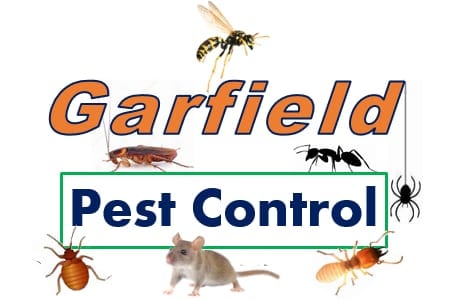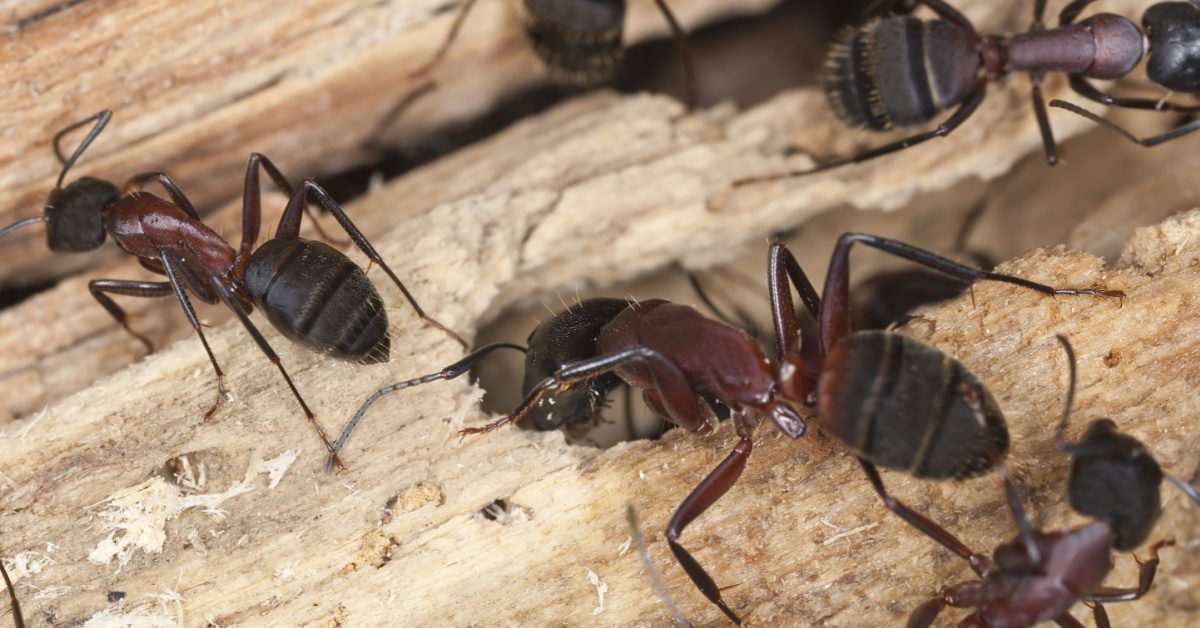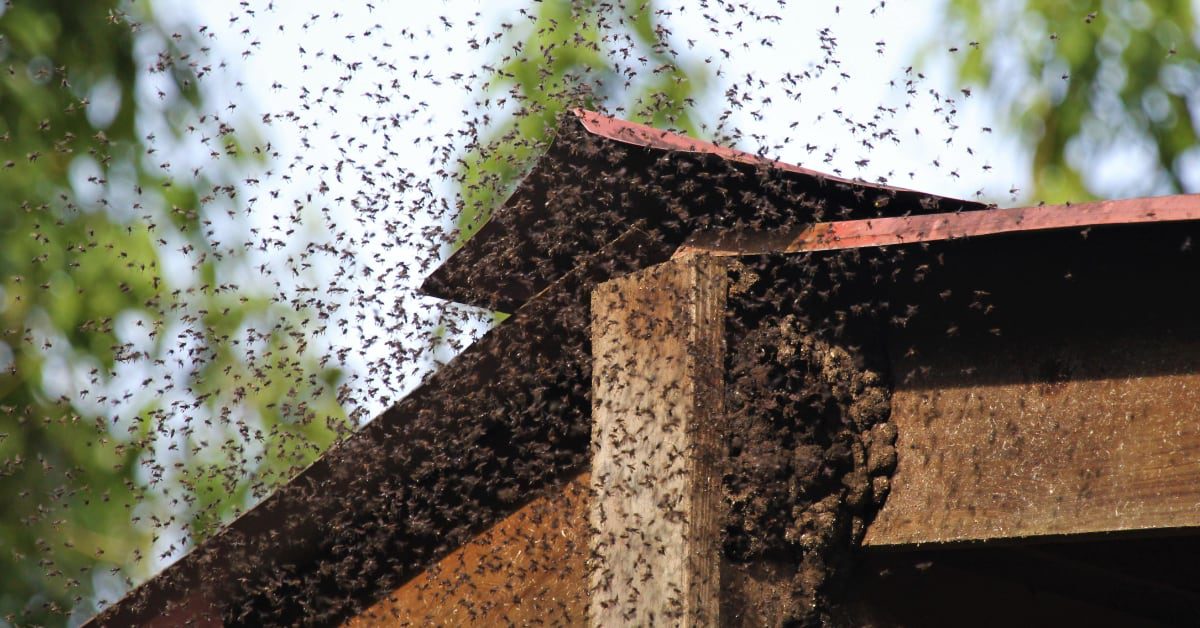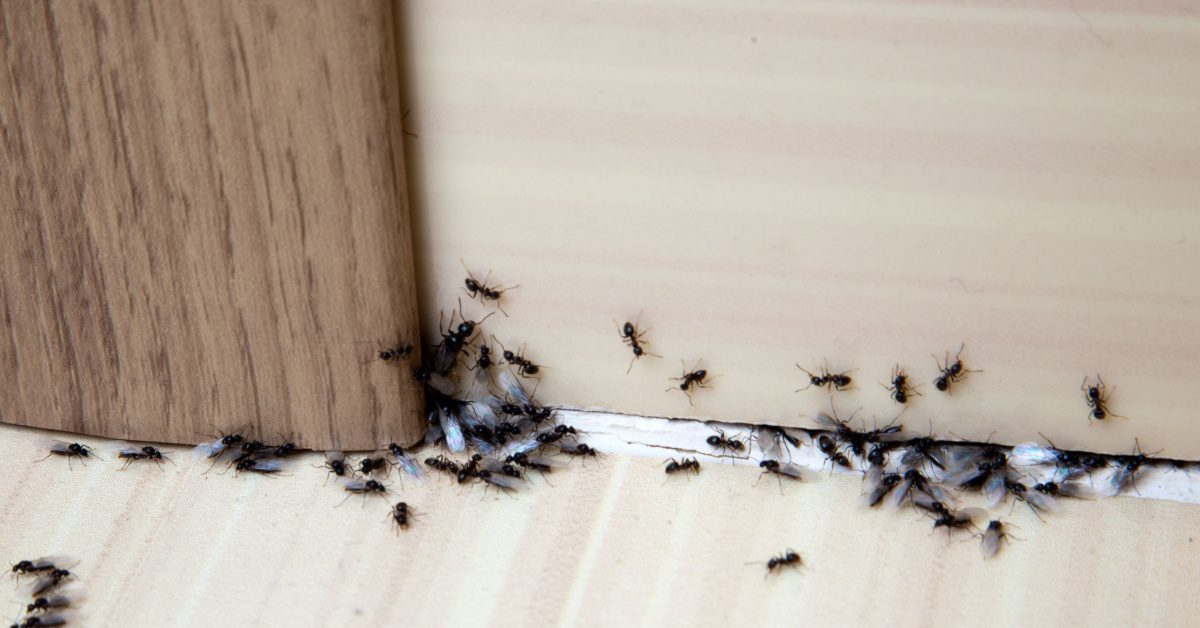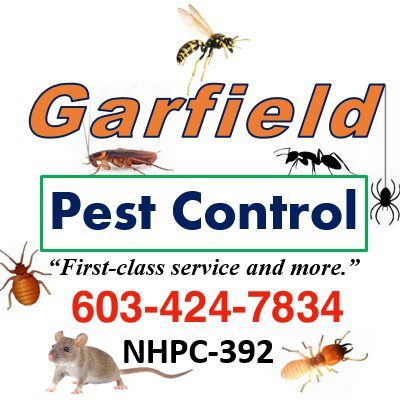Carpenter ants are a common problem for homeowners in New Hampshire, particularly during the spring when these insects become more active. These large, black ants are known for their ability to damage wooden structures as they create tunnels and galleries for their nests.
While carpenter ants do not eat wood like termites, they can still cause significant damage to homes if left untreated. This article will discuss carpenter ant treatment options for New Hampshire homes.
Identifying Carpenter Ants
Before discussing carpenter ant treatment options, it is essential to identify whether you have an infestation. Carpenter ants are typically larger than other ant species, measuring between 1/4 and 1/2 inch in length. They are usually black or dark brown and have a single node between their thorax and abdomen. Carpenter ants are often found near moisture-prone areas, such as kitchens, bathrooms, and windows.
Signs of Carpenter Ant Infestation
- The presence of large, winged ants (swarmers) inside the home, particularly during spring
- Small piles of sawdust-like material (frass) near wooden structures
- Faint rustling noises coming from within walls or woodwork
- Hollow-sounding wood when tapped
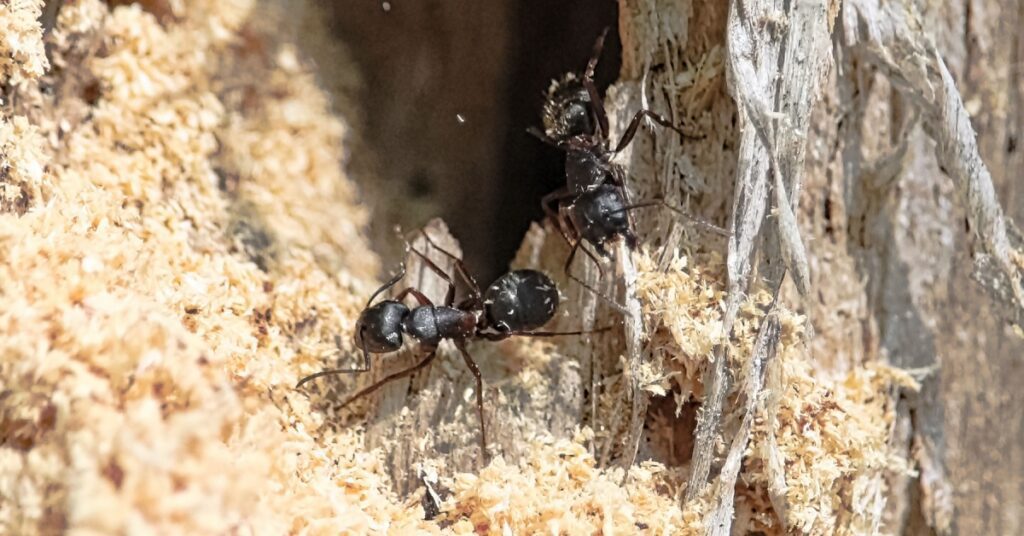
Prevention Measures
Before resorting to treatment, it is crucial to implement preventive measures to reduce the likelihood of carpenter ant infestations:
- Eliminate moisture problems by fixing leaks, ensuring proper ventilation, and using dehumidifiers
- Seal cracks and crevices in the home’s foundation and exterior walls
- Keep firewood, mulch, and other wooden materials away from the house
- Trim back shrubs and trees that touch the home’s exterior
- Store food in airtight containers and maintain a clean kitchen.
Carpenter Ant Treatment Options
Baiting
Baiting is a popular and effective method for controlling carpenter ant populations. Ant baits contain a slow-acting insecticide that the ants carry back to their colony, eventually eliminating the entire nest. Place baits near areas where you have seen carpenter ant activity, such as along baseboards, under sinks, and near windows.
Remember to keep these baits away from pets and children where they can easily reach them.
Insecticide Sprays
To treat carpenter ant infestations, insecticide sprays containing active ingredients like bifenthrin, cypermethrin, or deltamethrin can be used. The spray should be applied to entry points, baseboards, and other areas where ants are seen. When using insecticides, follow the manufacturer’s instructions and safety precautions. Note that insecticide sprays may not reach the central nest, so combining this method with baiting is often recommended.
In addition, some insecticides may be toxic to humans and pets.
Dust Insecticides
Insecticide dusts, such as boric acid or diatomaceous earth, can effectively treat carpenter ant infestations when applied to hard-to-reach areas like wall voids, cracks, and crevices where these ants often travel. These fine particles adhere to the ants’ exoskeletons and are ingested during grooming, ultimately leading to their demise.
However, it is essential to exercise caution when handling and applying dust insecticides, as they can pose respiratory risks if inhaled. Always follow the manufacturer’s safety guidelines and wear protective gear, such as a dust mask and gloves, to minimize exposure.
Professional Pest Control
The mentioned carpenter ant treatment options may help eliminate a few carpenter ants, but they come with risks and hazards.
Therefore, hiring a professional pest control company is always highly recommended for both minor and large carpenter ant infestations. Pest control experts have the proper tools, knowledge, and experience to locate and treat carpenter ant nests effectively and safely.
Follow-up and Monitoring
After treating a carpenter ant infestation, monitoring the area for residual activity is crucial. Inspect the treated areas periodically and promptly address any new signs of infestation. Maintaining a clean and moisture-free environment can help prevent future carpenter ant problems.
Trust Garfield Pest Control for Your Carpenter Ant Treatment Needs in New Hampshire
If you suspect carpenter ants are infesting your New Hampshire home, don’t hesitate to contact the experienced professionals at Garfield Pest Control. With a strong presence in Merrimack, Manchester, Nashua, and surrounding areas, Garfield Pest Control is well-equipped to handle carpenter ant problems of any size.
The skilled technicians use state-of-the-art tools and proven treatment methods to eliminate carpenter ant colonies and prevent future infestations effectively. By choosing Garfield Pest Control, you can have peace of mind, resting assured that your home will receive the highest-quality care and protection against these damaging pests.
Don’t let carpenter ants compromise your home’s structural integrity—trust Garfield Pest Control to provide the expert treatment and peace of mind you deserve. Contact Garfield Pest Control for the best and safest carpenter ant treatment.
